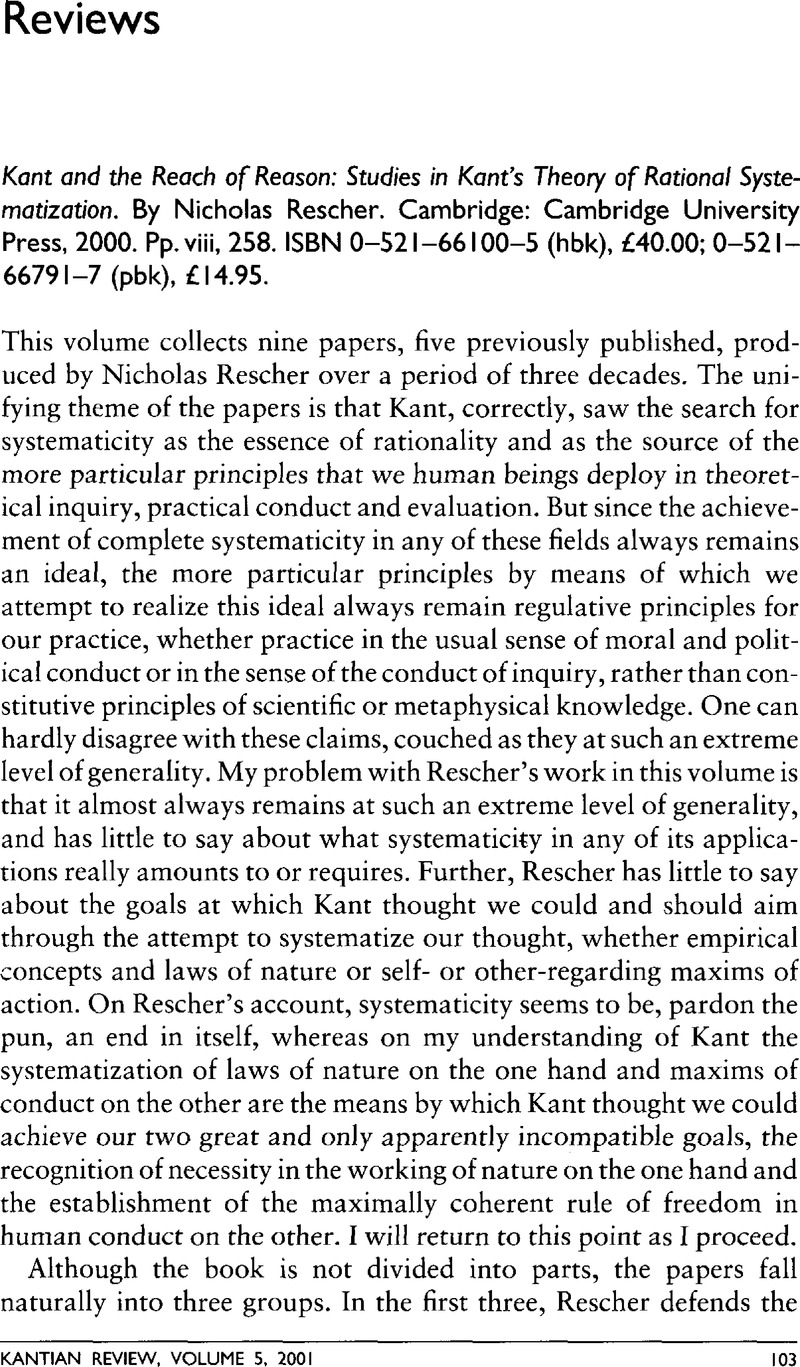No CrossRef data available.
Article contents
Kant and the Reach of Reason: Studies in Kant's Theory of Rational Systematization. By Nicholas Rescher. Cambridge: Cambridge University Press, 2000. Pp.viii, 258. ISBN 0-521-66100-5 (hbk), £40.00; 0-521-66791-7 (pbk), £14.95.
Published online by Cambridge University Press: 25 March 2011
Abstract

- Type
- Reviews
- Information
- Copyright
- Copyright © Kantian Review 2001
References
Notes
1 See my Kant and the Claims of Knowledge (Cambridge: Cambridge University Press, 1987), part V.
2 Of course, the interpretation of the concept of the thing in itself as essentially an abstract concept of ordinary objects has been extensively defended by Allison, Henry in Kant's Transcendental Idealism: An Interpretation and Defense (New Haven, CT: Yale University Press, 1983).Google Scholar
3 Particularly in ‘Kant's Morality of Law and Morality of Freedom’ (1993) and ‘The Possibility of the Categorical Imperative’, both reprinted in my Kant on Freedom, Law, and Happiness (Cambridge: Cambridge University Press, 2000).
4 See especially Herman, Barbara, ‘Leaving Deontology Behind’, chapter 10 of her The Practice of Moral judgment (Cambridge, MA: Harvard University Press, 1993),Google Scholar and Wood, Allen W., Kant's Ethical Thought (Cambridge: Cambridge University Press, 1999),CrossRefGoogle Scholar chapter 4.
5 See Friedman, Michael, Kant and the Exact Sciences (Cambridge, MA: Harvard University Press, 1992).Google Scholar
6 See Wood, , Kant's Ethical Thought, chapters 3–5.Google Scholar




